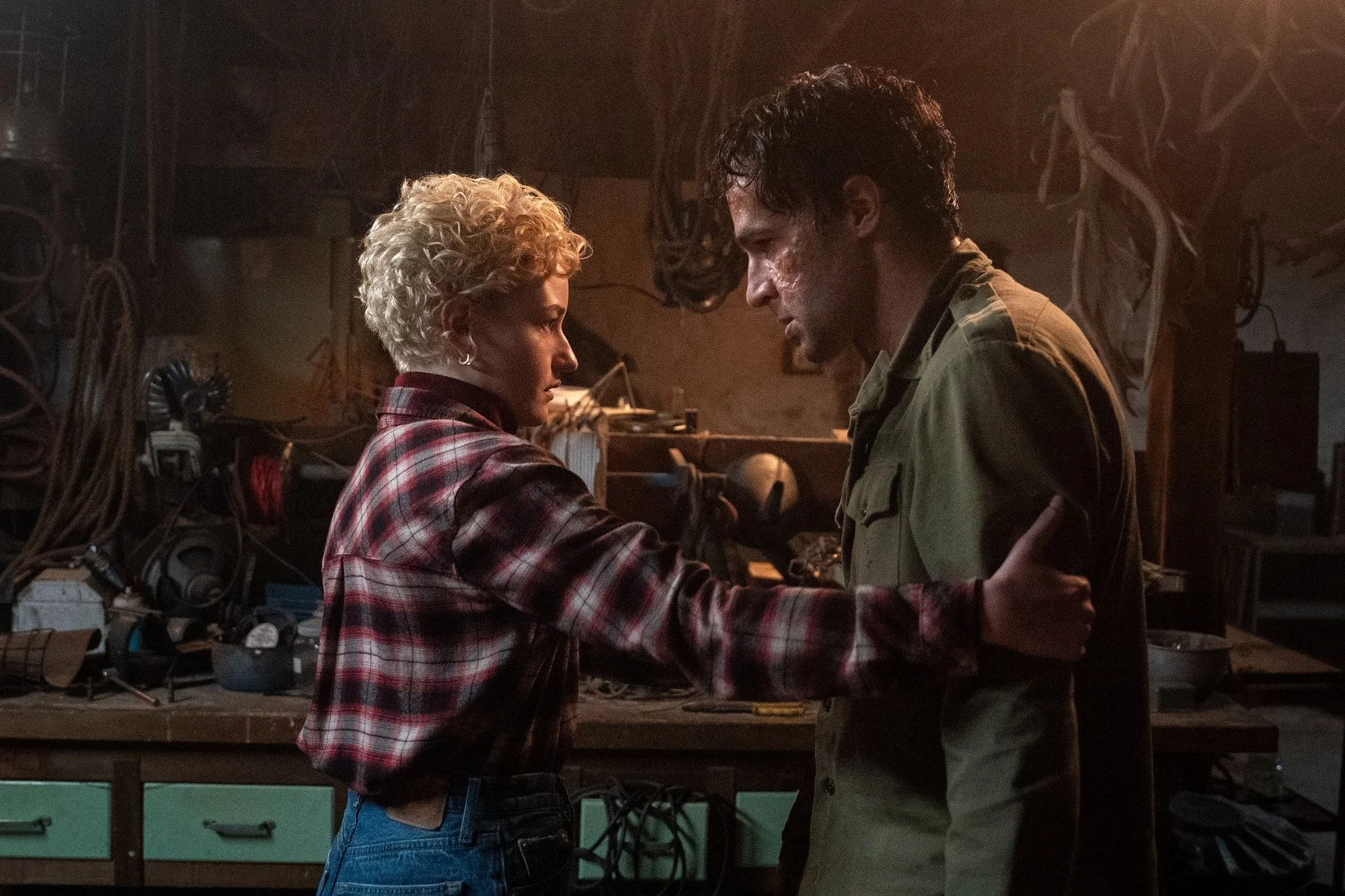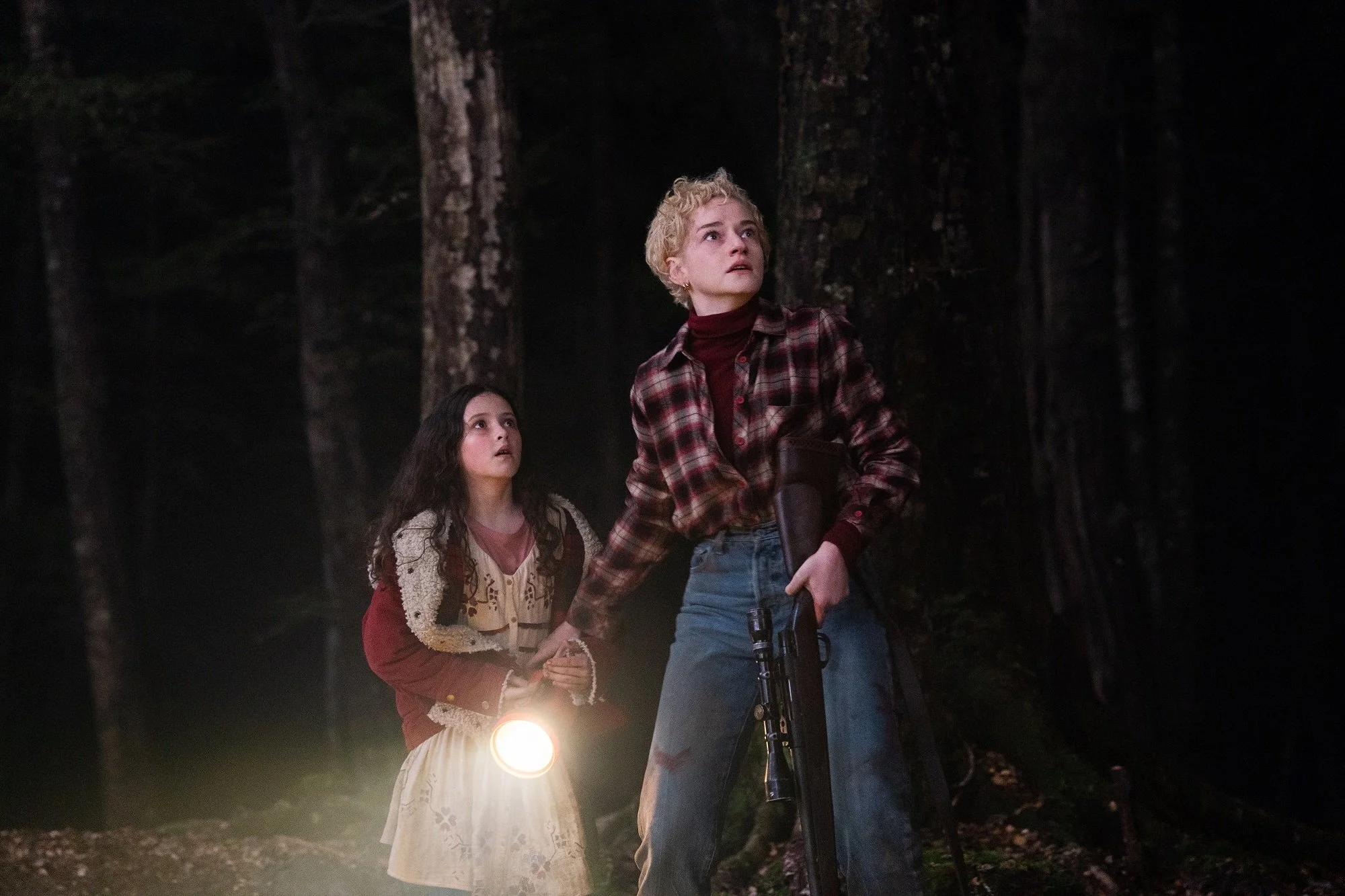IR Film Review: WOLF MAN [Universal]
The essence of doing something like "Wolf Man" the Blumhouse route comes down to perspective. Director Leigh Whannell, known originally for his work with the "Saw" franchise, has been smart in building his resume making these lean and mean films for producer Jason Blum when he could have naturally probably gone and tried bigger fare. "Wolf Man," like certain aspects of Ti West, benefits from this approach. When Whennell first showed "Upgrade" at a screening at SXSW, this reviewer thought during one chase scene it might have been better to have more than two cars involved but Whannell explained and then Blum chimed in why this works in this structure. It requires a creative pivot in certain ways which is why it works which is necessitate by the budget. "The Invisible Man" showed that he could do it more on a studio scale. What came about with that is a movie that felt more like 80s horror but with a slicker look and actors willing to try something as Elizabeth Moss did in that movie. It is the same with Wolf Man.
In using Julia Garner and even more so with Chistopher Abbot, the budget is kept down and yet you know know these faces although one is not sure quite from what. Abbott fares the best because of his transformation but literally what is character has to go through. It has elements of "Americam Werewolf in London" but also but also "Evil Dead." The house in the wilderness is always a good but using a diametric for location can be effective as well. While set in Oregon for the most part, the film was shot in New Zealand. The good thing is that it definitely feels more practical than with any type of CG work. Also it leaves one shot to the end which gives it a thematic reasonance as well as practicality. Whannel works in a different way than say director Mike Flanagan in that there is a different cinematic resonance even though there are similarities. Abbott works well as this character though he doesn't impose his presence of the viewee. At first, this reviewer thought it was Leigh Whammel himself. The same thing happened with Logan-Marshall Green in "Upgrade." And this is simply since Whammel was an actor. However this promotes the perspective of the everyman
It is also the aspect of by doing no credits until the end sort of really works in this instance for the suspension of disbelief. There are some interesting ommitted points though. The main one seems to be Abbot's Blake almost caring more for his daughter than his wife. One understands the thematic of protection but it does seem a little odd since Charlotte (Garner) seems more invested in him when he begins losing it. The one truly transformative use of perspective is when the film tranasitions in its cinematic language into what he is seeing versus what the humans are seeing and hearing. That really brings it home (and is the one use per se of full digital manipulation). It works in ways that "Never Let Go," the recent film that Halle Berry did for Lionsgate, couldn't figure out.
The progression of this film is in many ways what one with think and it is also, in many ways, a closed story. It also doesn't remotely explain how or why this happens. But that overall is good for the movie because it gives the audience its own ability to fill in the mythology without somethiing necessarly being steadfast. "Wolf Man" is an interesting approach to the Universal Monster universe being more budget conscious and unique in its own ways without shackling itself in a necessity to deliver in a larger way. That is the beauty of Blum's approach sometimes because you don't have to make a movie for everyone and can try new things while still having the essence of an IP. B+
By Tim Wassberg




